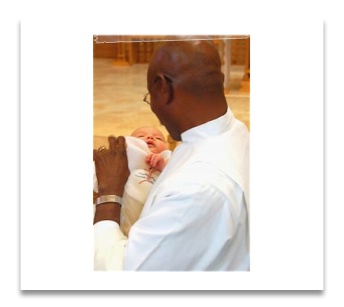 Baby blessing is a ritual that is becoming increasingly popular with new parents. Read on to learn about baby blessings and see if this is something that is right for your baby and your family.
Baby blessing is a ritual that is becoming increasingly popular with new parents. Read on to learn about baby blessings and see if this is something that is right for your baby and your family.
A baby blessing is a welcoming and blessing ritual for your baby that isn’t associated with a particular church or religion. While people who are unfamiliar with this practice may think it is something new age or without an element of traditional religion, this is far from the case. A baby blessing can encompass many different ideas and meld together religious beliefs and traditions.
In a baby blessing, parents choose the ways and rituals that they want to use to honor their new addition to the family. The ceremony is custom created for the family by an interfaith minister or by the family themselves. Baby blessings are tailored to reflect the parents wishes. Some of the rituals that may or may not be included in a baby blessing include:
- Joining hands and vowing to love and protect the child
- Anointing the child with oil
- Giving the baby a separate Hebrew name or saint’s name
- Dedicating the child to the service of God
- Sharing a chalice of wine or water
- Wrapping a baby in a special blanket or garment
- Including birth parents if your child is adopted
- Any blessing or welcoming ritual that you feel is meaningful.
And yes, you can include baptism in the ceremony, even if it does not take place in a church.
Baby blessings can be a blessing to parents who feel a conflict between the pressure by extended family to baptize or dedicate a child in a traditional church setting and the feeling that such a ceremony is not right for them. They may come from different religious backgrounds (a recent survey showed that 22 percent of American families say that they identify with a mix of religions), they may be unaffiliated with religious traditions (12 to 19 percent of Americans in the survey), or they may find themselves in conflict with some of the teachings of their associated church.
Click here for more articles by Mary Ann Romans.
Related Posts:
Would You Sell Naming Rights to Your Baby?

